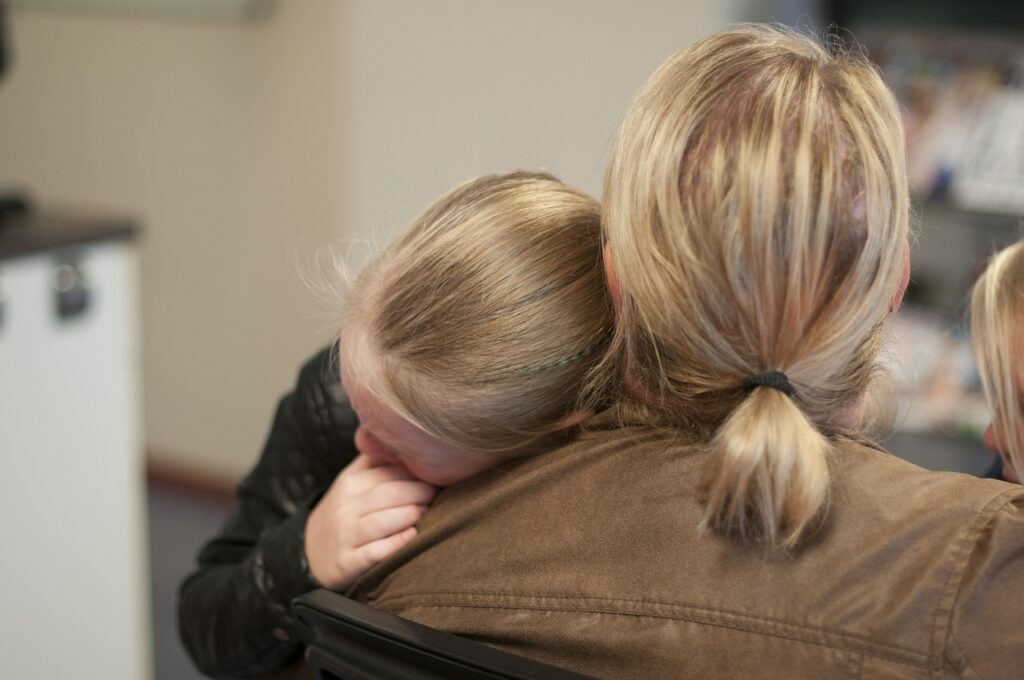 When children experience loss, whether it’s the death of a loved one, a pet, or another significant life change, their tender hearts are affected deeply. As adults, it is our responsibility to be there for them, to hold their hands through the storm, and to provide a safe space where they can navigate their emotions. In this post, we explore the delicate and profound journey of children and grief, offering insights on how to support these young souls through their healing process.
When children experience loss, whether it’s the death of a loved one, a pet, or another significant life change, their tender hearts are affected deeply. As adults, it is our responsibility to be there for them, to hold their hands through the storm, and to provide a safe space where they can navigate their emotions. In this post, we explore the delicate and profound journey of children and grief, offering insights on how to support these young souls through their healing process.
1. Listen with Patience and Openness
When children are grieving, they may not have the words to express their emotions fully. It’s crucial to listen with patience and openness. Create a safe and non-judgmental space where they can share their feelings at their own pace. Sometimes, they might communicate through play, art, or storytelling, so be attuned to their unique ways of expressing themselves.
2. Be Honest and Age-Appropriate
Children have an innate sense of intuition, and they can often sense when something is wrong. Be honest with them about the loss, using age-appropriate language to explain the situation. Avoid using euphemisms, as it may confuse them or make them feel isolated. Honesty fosters trust, and it allows them to process their emotions more effectively.
3. Validate Their Emotions
Grief can stir a wide range of emotions in children, from sadness and anger to confusion and fear. Let them know that all their feelings are valid and that it’s okay to express themselves. Reassure them that they are not alone in their emotions and that it’s okay to cry, scream, or feel however they need to feel.
4. Encourage Questions and Provide Answers
Children may have many questions about death and loss. Encourage them to ask questions and provide honest answers to the best of your ability. If you don’t know the answer, it’s okay to admit it. Avoid making promises you can’t keep, as this may lead to further confusion and disappointment.
5. Be a Role Model in Expressing Emotions
Children often learn how to cope with emotions by observing the adults around them. Be a role model in expressing your own emotions. Show them that it’s okay to feel sad or angry and that expressing these feelings is a natural part of the healing process.
6. Maintain Routines and Stability
During times of grief, children may feel a sense of chaos and instability. Maintaining daily routines and stability can provide them with a sense of security. It gives them something familiar to hold onto amidst the turmoil of emotions.
7. Offer Physical Comfort
Physical touch can be incredibly comforting during times of grief. Offer hugs, hold their hands, and provide a shoulder to lean on. Your physical presence can offer a sense of reassurance and safety during difficult times.
8. Include Them in Grieving Rituals
Children benefit from being included in grieving rituals and ceremonies, as it gives them a sense of belonging and helps them understand the importance of honoring the departed. Whether it’s attending a memorial service, lighting a candle, or planting a tree in memory, these rituals can be deeply meaningful for children.
9. Use Books and Stories as Tools for Healing
Books and stories can be powerful tools for helping children process grief. Look for age-appropriate books that deal with loss and grief. Reading these stories together can provide opportunities for discussion and emotional release.
10. Watch for Signs of Distress
Children may not always express their grief openly, and some may try to hide their emotions. Watch for signs of distress, such as changes in behavior, sleep disturbances, loss of appetite, or regression in behavior. If you notice any concerning signs, seek professional help or counseling to support them through their grief.
11. Create Memory Boxes or Journals
Encourage children to create memory boxes or journals where they can keep mementos, drawings, or letters in memory of the person or pet they lost. This activity can be therapeutic and offer a tangible way for them to preserve memories.
12. Be Patient with Behavioral Changes
Grief can manifest in behavioral changes, such as increased clinginess, anger outbursts, or withdrawal. Be patient with these changes and avoid scolding or punishing them for expressing their grief. Instead, offer understanding and support.
13. Seek Support for Yourself
Supporting a grieving child can be emotionally taxing. It’s essential to seek support for yourself too. Reach out to friends, family, or a counselor to talk about your feelings and experiences.
14. Use Play and Creative Activities
Children often process emotions through play and creative activities. Encourage them to draw, paint, or engage in play that allows them to express their feelings and experiences.
15. Remember that Healing Takes Time
Healing from grief is not a linear process, and it takes time. Be patient with your child and remember that their grief journey is unique. Offer your unwavering presence and love as they navigate the twists and turns of healing.
Conclusion
Supporting a grieving child requires empathy, patience, and a willingness to embrace their emotions with an open heart. Remember that children are resilient, and with the right guidance and support, they can find their way through grief. Be a loving and understanding presence as they embark on this tender and profound journey of healing.








